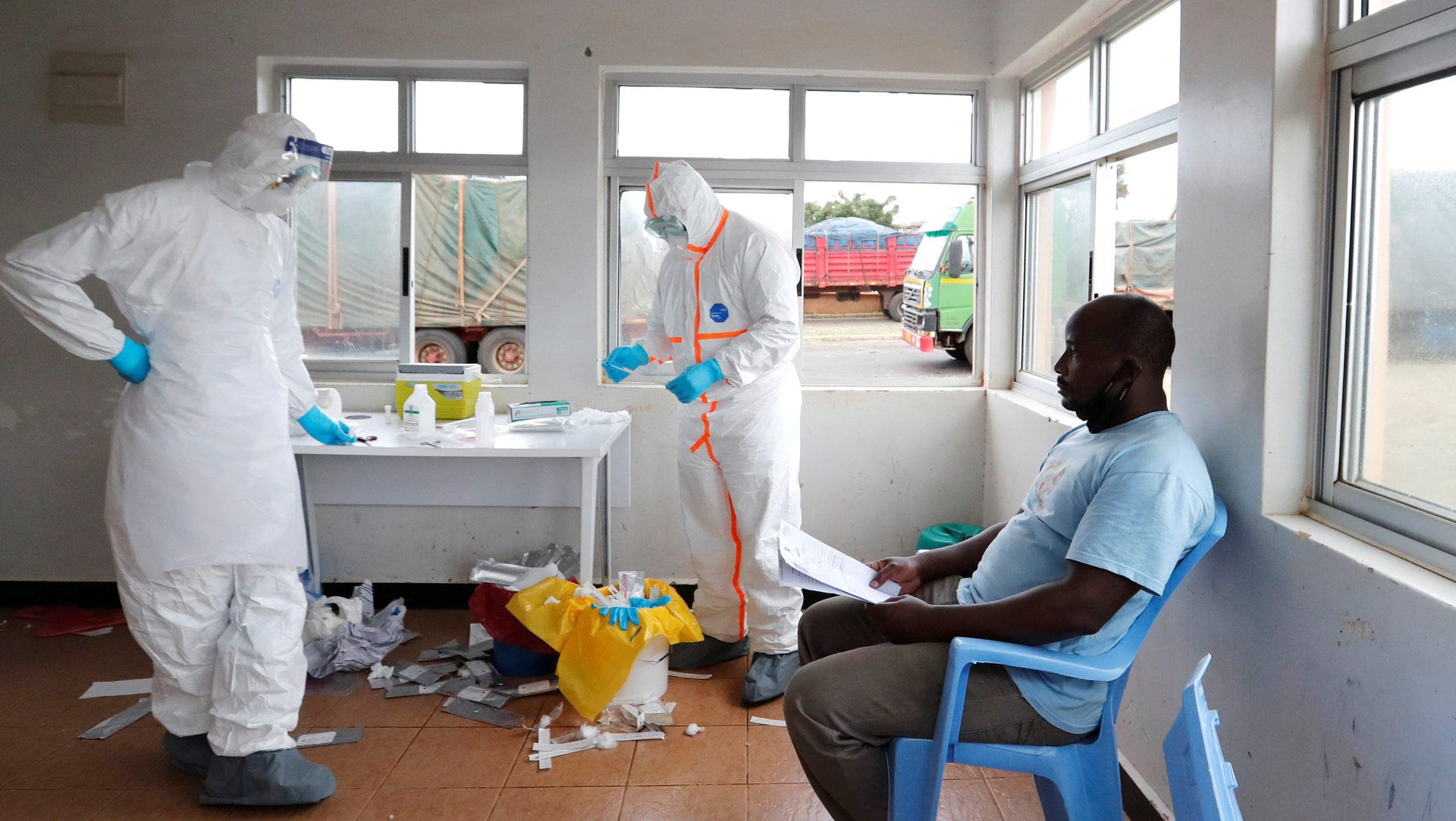Tanzania announces new Covid-19 measures under mounting pressure
After months of downplaying the disease, Tanzania has finally acknowledged the presence of Covid-19 in the country, and introduced new measures to prevent its spread.


After months of downplaying the disease, Tanzania has finally acknowledged the presence of Covid-19 in the country, and introduced new measures to prevent its spread.
The announcement comes after weeks of concerns raised by activists, the Catholic Church, the US embassy, and others who have spoken up about a deadly resurgence of Covid-19, blamed on an unlikely outbreak of pneumonia.
The sudden deaths of several high-profile politicians, believed to be as a result of Covid-19, fueled worries that the country was in the grips of a second wave. These included the vice president of semi-autonomous Zanzibar, Seif Sharif Hamad, chief secretary John Kijazi, and the former Bank of Tanzania Governor, professor Benno Ndulu.
On Feb. 21, the World Health Organization (WHO) called upon Tanzania to take “robust action” to tackle the virus. Director-General Tedros Adhanom Ghebreyesus said the situation remains “very concerning.” Since then, the Ministry of Health has released a statement urging Tanzanians to take precautions, including hand washing and wearing face masks. The government is also promoting herbal remedies, such as steam inhalation to combat the coronavirus. These methods have not been approved by the WHO.
A Covid-19 testing centre has also been set up at Serengeti National Park and on 23 February, the Dar Rapid Transit Agency (DART) released new guidelines for traveling on the capital Dar es Salaam’s public transport—it is now mandatory to wear a mask and practice social distancing.
While president John Magufuli has still not directly referred to coronavirus, he did acknowledge an increase in respiratory diseases. Speaking at Kijazi’s funeral, he said: “We managed to defeat these respiratory diseases last year. We will do so again with God’s help.” After declaring three days of prayer, the president added that people should wear masks but only ones that are locally made. He reiterated that the country will not impose a lockdown.
Zitto Kabwe, the leader of the opposition party, Alliance for Change and Transparency (ACT) Wazalendo, called the new rules insufficient: “There is not enough testing happening, and without that it is difficult to reduce the transmission. The health system is already overwhelmed, and the government has not proposed any measures to manage this.”
Tanzania has not released any numbers on Covid-19 since April 29, 2020, and shortly thereafter declared the country free of the disease following a strict lockdown. Kabwe believes that the government must collect and share this data to tackle the virus effectively. “We need widespread testing and the release of data,” he said. “We also require a big investment in protecting healthcare workers and public health announcements to inform citizens on how to stay safe.”
While the number of coronavirus cases in the country remains unknown, those on the frontline say that hospitals are struggling to deal with the number of patients they are seeing with respiratory problems. Dr Deus Kitapondya, a medical specialist based in Dar es Salaam, said that although these rules are a step in the right direction, more must be done. “We still do not have the mandate to give a clear coronavirus diagnosis,” he said. “Doctors need comprehensive guidance and protocols, so we know how to manage patients with Covid-19.